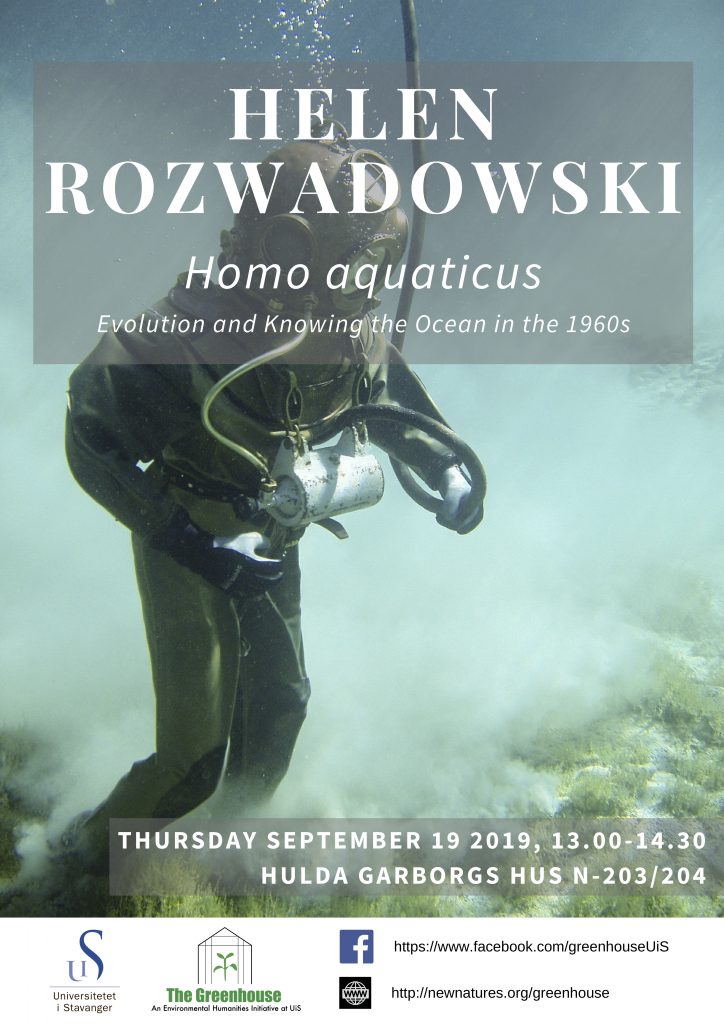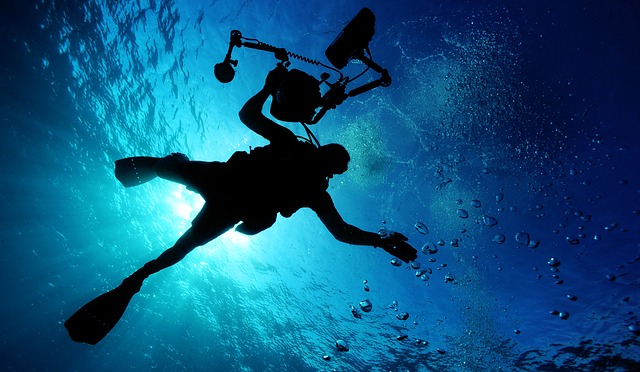Join us for our second a Greenhouse seminar series lecture of the fall on Thursday, September 19, 2019, 13-14:30 in HG N-203/204. Professor Helen Rozwadowski will be sharing her research with us with “Homo aquaticus, evolution and knowing the ocean in the 1960s“.

Abstract
Knowledge of the ocean has derived in part from humans’ physical experience on, in and alongside it. Involvement of human bodies in creating knowledge about the undersea environment intensified beginning in 1949, when scuba technology became commercially available and was quickly applied to a range of new underwater activities including film-making, archaeology, spearfishing, recreation, treasure hunting, various industrial activities, and also science. Those involved with diving portrayed it as a transformative experience and insisted that immersion in the sea conveyed a privileged perspective, offering the diver a view from the sea creatures’ vantage that many scientists believed would result in better knowledge of the ocean. Technology enthusiasts and futurists emphasized that human bodies themselves had emerged from an evolutionary process that began in the sea, interpreting the underwater environment as a natural one even for air-breathing people and anticipating the ability to manipulate human bodies to enable them to breathe in sea water. Jacques Cousteau predicted in 1962 the evolution of Homo aquaticus, and experiments implanting artificial gills in mice seemed to confirm the possibilities. This evolutionary thread of the underwater experience closely allied to the era’s ambitions in space; indeed, the best starting point for the anticipated successful journey to space was widely understood to be the ocean’s depths, for both natural and technological reasons. Sir Alister Hardy’s 1960 aquatic ape hypothesis credited early human experience of watery environments with responsibility for the evolution of modern human characteristics, while anthropologists’ new theories of cultural evolution seemed to confirm the possibility of intentional evolution directed by the application of technology. This paper explores how knowledge of the ocean, particular in support of the undersea activities undertaken and anticipated in the 1960s, prompted reconsideration of what environments were human environments. Ocean boosters constructed the ocean as the site where humans might direct their own evolution in order to naturalize their goal of putting people underwater to work and live.
About our speaker
Helen M. Rozwadowski is a professor of History at University of Connecticut. Her teaching includes environmental history, history of science, and public history, as well as interdisciplinary maritime studies courses. Her latest book, Vast Expanses: A History of the Oceans (2018), demonstrates that the human relationship with the ocean began in evolutionary time and has tightened dramatically since them, aims to provide a model for writing ocean history, and argues that ocean histories must examine and historicize the technologies and knowledges systems that enabled and accompanied human interactions with the sea. Her book, Fathoming the Ocean: The Discovery and Exploration of the Deep Sea (2005), which reveals the simultaneous scientific and cultural discovery of the ocean’s depths in the mid nineteenth century, won the History of Science Society’s Davis Prize for best book directed to a wide public audience.
